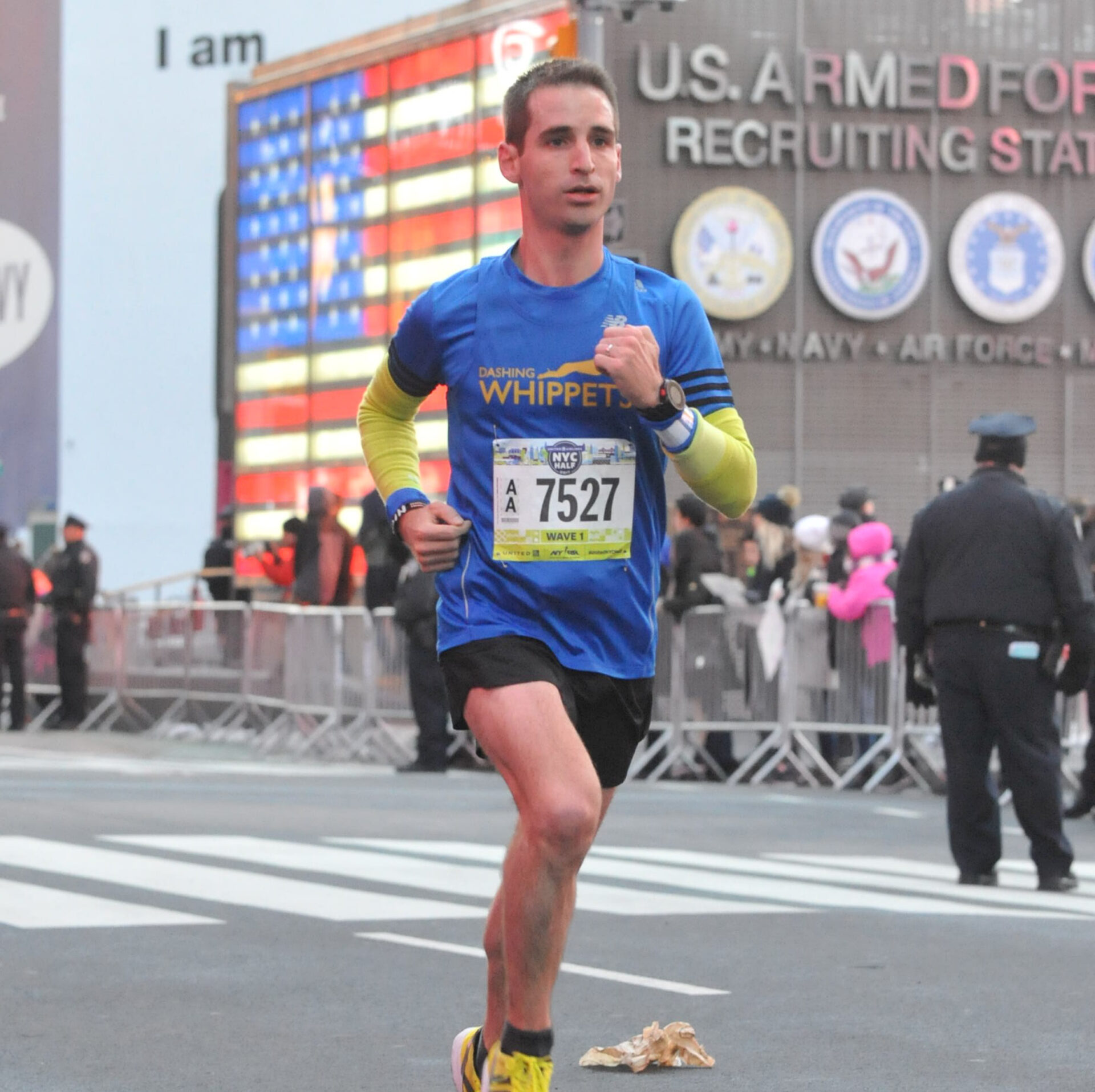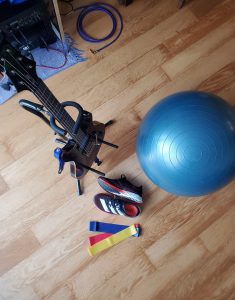In many ways, being a musician prepared me for my discovery of running. I definitely wouldn’t have dreamed of taking up serious running 15 years ago as a freshman at a conservatory. Chord voicings, transcriptions, ensemble work and theory seemed to occupy most of my time. In retrospect, I probably took music too seriously and didn’t give myself enough credit in those four years before moving to New York City.
Although I took music too seriously at the time, it is the skills that I developed with my musical craft which helped informed me how to gradually improve my running practice. After close to 7 years of running and 1 1/2 years of studying the biomechanics of running, here are some tips I’ve learned along the way.
1.) Maintain a good, upright posture when playing music.
When running, I think tall while leaning in slightly with my ankles and not my waist. Many musicians, especially instrumentalists, tend to slouch and round the back when playing. This causes stress, especially your neck and shoulders. It’s definitely not optimal. As fatigue sets in, your posture tends to get worse. This is why I’ll either stand or sit on an exercise ball when practicing music.
I will add that I’m very mindful of my hip flexors. Having enough mobility in that area is crucial to running well and if you sit for a long period of time, it can become detrimental to your hips. If I’m spending the time putting in the miles, you better believe I’m going to make sure I’m moving optimally. It is worth the extra time to do exercises that prepare the body for movement.
2.) Eat the right food and remember to breathe.
As a father of two in Brooklyn, NY it seems like I’m always busy with something. Add training and practicing in the mix, and I seriously don’t know when I ever have downtime. This is why I need to eat food that not only gives me energy, but keeps my immune system in check. I can tell a difference in my energy when my nutrition is good.
Remember to breathe through the diaphragm, especially when running. As a guitarist, I may not technically produce sounds through breathing, but it helps make my phrasing sound more natural and organic when I do. When running becomes difficult, breathing through my stomach while taking longer breaths can help me either maintain or increase my pace during a workout.
3.) Strengthen your whole body.
We live in a world with much hype. People will either claim to know everything or try to reinvent the wheel. While I’m open to questioning and challenging some conventional ways of doing things, in all reality, everything depends on context. When talking about improving running as a skill, some exercises are probably better than others. But, I’m trying to be the best well-rounded version of myself. In actuality, you really do need to read two books and decide for yourself with what works best for you. All the answers aren’t on Instagram, either. Even though I might incorporate a strengthening exercise that’s not specific to my running, doing so helps my overall wellness.
4.) Make decisions.
Don’t wait for things to happen. If I am composing a piece of music, I will write out a melodic motif or a chord progression and work out developing it over a period of time. I simply don’t wait until I’m inspired and ideas come to me. Though, there are times when I’m really hearing music well that a tune will write itself.
When it becomes difficult to hang on or surge during a race, you have to make a decision. Do I push through when my body tells me to slow down? Do I back off and hope for a strong kick towards the finish line? In my past, I would want to give up after one mile. I would always end up deciding to follow through with completing the distance. A lot of times I would end up surprising myself with a personal best or a better time than I thought I would achieve. Had I not completed a race I knew I could physically finish, I know I wouldn’t have been happy with myself until I raced again.
What I’ve found in this journey of mine is that music and running simply go together. I have grown throughout the years based on my experiences and working on my craft. It took me a long time to be able to hear certain things and connect them together. It also took me awhile to connect the dots with the physiological side along with the biomechanics of running. Although I have been running for about 7 years, I feel like I’m only getting started.


